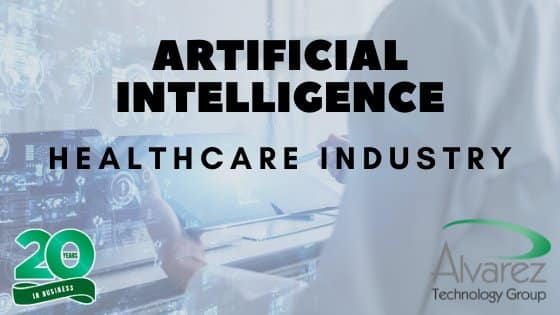You Know How AI Will Change The Medical World In The Next 10 Years?
Artificial intelligence is one of the most exciting and potentially world-changing technologies in development right now. Do you know what it means for the healthcare industry you operate in?

What Is Artificial Intelligence?
Artificial intelligence, as a term, can still often sound like science fiction – but it’s not. Not anymore, at least.
Over the past few years, developments and leaps in the furthering of machine-learning have led to the integration of artificial intelligence into products you already use or future versions of products you use.
And in the healthcare industry, it’s likely here to stay – by 2030, AI will access multiple sources of data to reveal patterns in disease and aid treatment and care. Take, for example, Google’s “Project Nightingale”, a new initiative to collect and analyze the health data of millions of Americans. Their recently signed deal with the second-largest US healthcare system, Ascension, will provide them with access to data collected from 150 hospitals across the country.
The aim of this project is to feed as much medical data into Google’s artificial intelligence (AI) systems as possible. In theory, by uploading massive data sets (like those managed by Ascension) to Google’s cloud computing systems, their AI can then scan and analyze the data, using it to identify trends in healthcare.
The larger the data set, the more the AI has to work with, developing more accurate models and providing more useful insight into patterns in healthcare, such as rates of diagnoses of specific illnesses, the effectivity of specific treatments, and other important information.
Whether artificial intelligence is truly beneficial or not, with that kind of popularity among those in charge, it’s not going anywhere.
How Does Artificial Intelligence Work?
Artificial intelligence is a technology that allows computers to correctly make decisions that would otherwise be left up to users.
The two primary popular forms this has taken in the consumer and business worlds to date include:
- Machine-learning, which exponentially improves the frequency with which it makes correct decisions by accumulating data and repeating processes (i.e., it “learns” by rote)
- Speech-based technology that can understand spoken word in multiple languages, allowing it to execute tasks by verbal input (e.g. Siri, Alexa, Google Assistant)
How Will Artificial Intelligence Affect The Healthcare World?
There are three primary ways that artificial intelligence will begin to affect the medical community:
Support For Predictive Care
One of artificial intelligence’s primary capabilities is prediction. Given enough raw data, artificial intelligence can make accurate predictions as to what will occur next. Considering how much trackable external factors can influence health, artificial intelligence is uniquely qualified to provide predictive care.
Over the course of this decade, you can expect to see new applications of artificial intelligence technology that will anticipate if a patient is, for example, at risk of developing a chronic disease and make recommendations as to how this outcome can be mitigated, through changes to their behavior, environment, and medication.
Bringing Healthcare Providers Together
Another likely effect of the introduction of artificial intelligence in the healthcare workplace is an evolution of the way facilities are designed to treat and manage different types and severities of illness.
It is possible that by 2030, there will no longer be hospitals, in the sense of having one location that deals with the vast majority of healthcare services. Instead, these larger centers would focus on the most severe illnesses requiring the most complex medical procedures, and as you move out from that central hub, smaller and smaller locations would deal with simpler and simpler cases.
How do these locations work together? Via an artificial intelligence-powered network, collecting, centralizing and analyzing all data from every location, routing healthcare as needed, tracking trends, and optimizing the use of resources and delivery of services.
Improving The “User” Experience
Both for healthcare professionals and patients alike, artificial intelligence has the potential to vastly improve their experience in the healthcare setting. By automating tedious tasks, improving time tables, and reducing human error, healthcare administration will become nearly optimized.
What does all this mean for you?
Don’t worry, no computer is going to take your job anytime soon. As artificial intelligence continues to develop its role in the professional setting around the world, it should only prove to mitigate common issues and improve the human experience wherever applied.
Like this article? Check out the following blogs to learn more:
Watch Out! You’re IT Provider May Not Secure Your Data Properly
URGENT/11 Zero-Day Vulnerabilities Impacting 2 Billion Devices





